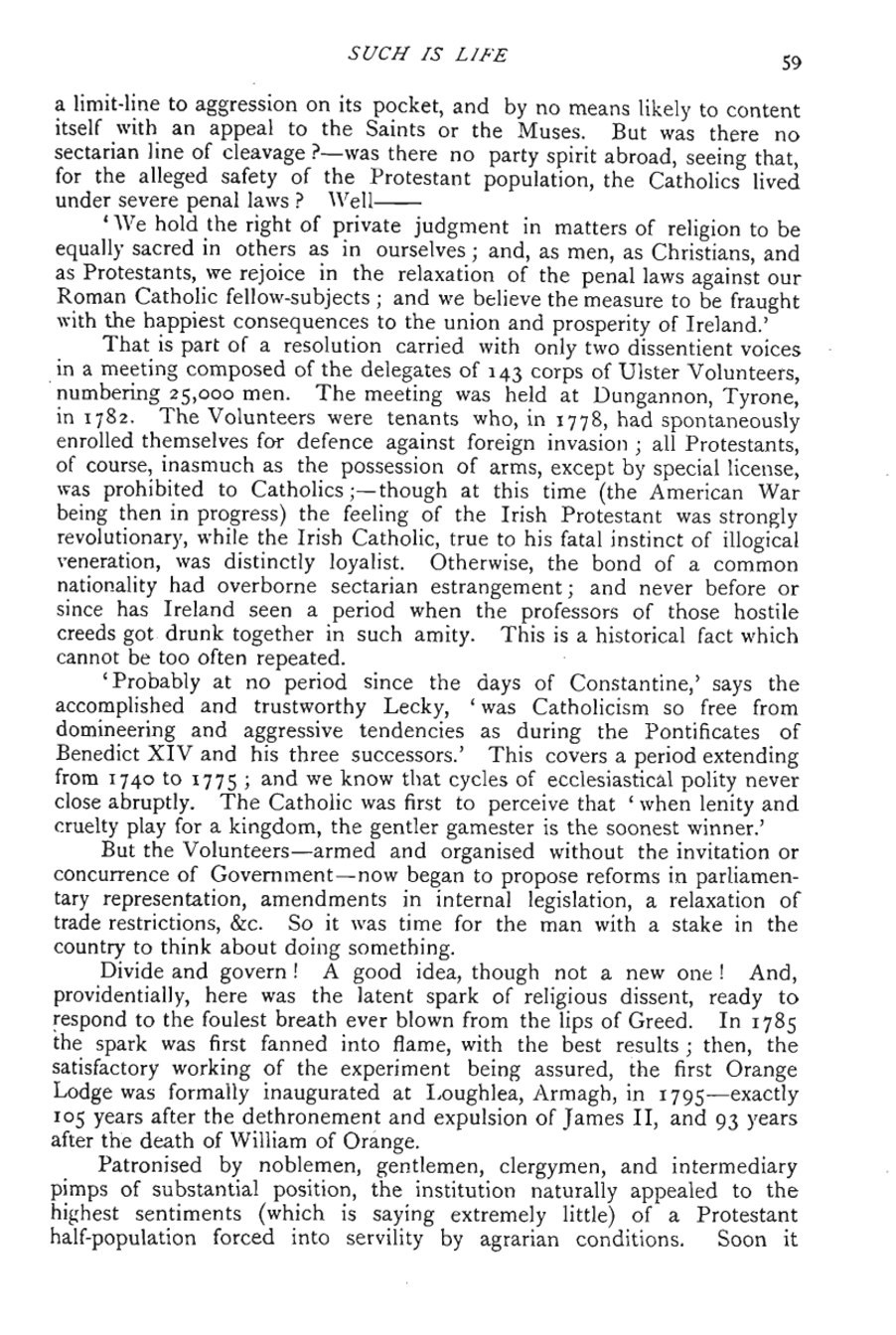a limit-line to aggression on its pocket, and by no means likely to content itself with an appeal to the Saints or the Muses. But was there no sectarian line of cleavage?—was there no party spirit abroad, seeing that, for the alleged safety of the Protestant population, the Catholics lived under severe penal laws? Well
‘We hold the right of private judgment in matters of religion to be equally sacred in others as in ourselves; and, as men, as Christians, and as Protestants, we rejoice in the relaxation of the penal laws against our Roman Catholic fellow-subjects; and we believe the measure to be fraught with the happiest consequences to the union and prosperity of Ireland.’
That is part of a resolution carried with only two dissentient voices in a meeting composed of the delegates of 143 corps of Ulster Volunteers, numbering 25,000 men. The meeting was held at Dungannon, Tyrone, in 1782. The Volunteers were tenants who, in 1778, had spontaneously enrolled themselves for defence against foreign invasion; all Protestants, of course, inasmuch as the possession of arms, except by special license, was prohibited to Catholics;—though at this time (the American War being then in progress) the feeling of the Irish Protestant was strongly revolutionary, while the Irish Catholic, true to his fatal instinct of illogical veneration, was distinctly loyalist. Otherwise, the bond of a common nationality had overborne sectarian estrangement; and never before or since has Ireland seen a period when the professors of those hostile creeds got drunk together in such amity. This is a historical fact which cannot be too often repeated.
‘Probably at no period since the days of Constantine,’ says the accomplished and trustworthy Lecky, ‘was Catholicism so free from domineering and aggressive tendencies as during the Pontificates of Benedict XIV and his three successors.’ This covers a period extending from 1740 to 1775; and we know that cycles of ecclesiastical polity never close abruptly. The Catholic was first to perceive that ‘when lenity and cruelty play for a kingdom, the gentler gamester is the soonest winner.’
But the Volunteers—armed and organised without the invitation or concurrence of Government—now began to propose reforms in parliamentary representation, amendments in internal legislation, a relaxation of trade restrictions, &c. So it was time for the man with a stake in the country to think about doing something.
Divide and govern! A good ideal though not a new one! And, providentially, here was the latent spark of religious dissent, ready to respond to the foulest breath ever blown from the lips of Greed. In 1785 the spark was first fanned into flame, with the best results; then, the satisfactory working of the experiment being assured, the first Orange Lodge was formally inaugurated at Loughlea, Armagh, in 1795—exactly 105 years after the dethronement and expulsion of James II, and 93 years after the death of William of Orange.
Patronised by noblemen, gentlemen, clergymen, and intermediary pimps of substantial position, the institution naturally appealed to the highest sentiments (which is saying extremely little) of a Protestant half-population forced into servility by agrarian conditions. Soon it
